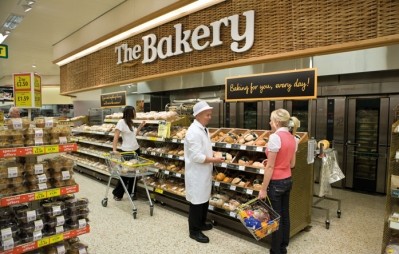Morrisons ‘most vulnerable’ to acquisition: analyst

“The top four grocers are all under pressure and Morrisons is the most vulnerable,” Julian Wild, head of the food team at Rollits solicitors, told FoodManufacture.co.uk.
Wild’s comments followed reports last week that South African businessman Christo Wiese was interested in acquiring a UK supermarket. After the speculation, Morrisons’ shares spiked on Friday (September 4) by 5% (7.5p) to 170p.
Wiese’s UK Brait investment arm already owns a 19% stake in the frozen food specialist Iceland and owns fashion firm New Look and gym chain Virgin Active.
‘Very poor acquisitions’
‘Morrisons has lost its way’
“Morrisons has lost its way and has to return to the values espoused by Sir Ken Morrison – understanding its customer base and offering real value.”
- Julian Wild, Rollits solicitors
Although Wiese hadn’t specified which retailer he was interested in, Wild said: “Morrisons is pulling out of convenience, has never been a [compelling] player online, has made some very poor acquisitions and should have pulled out of own manufacturing long ago.
“A new investor with new ideas and resources to make Morrisons more competitive will probably be beneficial for the whole company. Morrisons has lost its way and has to return to the values espoused by Sir Ken Morrison – understanding its customer base and offering real value.”
Despite being confident in the likelihood of a takeover, Wild didn’t believe an investor from South Africa would help to consolidate the market, which “ultimately is what is required”.
“Ultimately, it will be down to the institutional shareholders and what they are offered,” Wild added. “If the price is right, they will sell and, seeing how Morrisons has performed in recent years, they may well be happy to exit.”
In June Wild predicted that sooner or later, the big four supermarkets – Tesco, Asda, Sainsbury and Morrisons – could eventually become the big three.
‘The most vulnerable’
Morrisons and Sainsbury were highlighted as the two most vulnerable supermarkets by Wild. He said: “For me, JS [Sainsbury] and Morrisons are the most ‘vulnerable’, but, obviously, both are big mouthfuls and both have pros and cons. The UK is a finite market.
“A merger or acquisition looks a strong possibility at some stage, as the big four struggle for growth and are eating each other’s lunch … eventually something has to give.”
However, at the time, Shore Capital director and head of research Clive Black, said: “It’s highly questionable that the big four will become the big three anytime soon.
“The Competition Commission – the predecessor to the CMA [Competition and Markets Authority] stated that it wanted four national players and for this to change would require a high level of approval and/or financial collapse of an incumbent player. These represent large barriers to change.”
Morrisons refused to comment.















